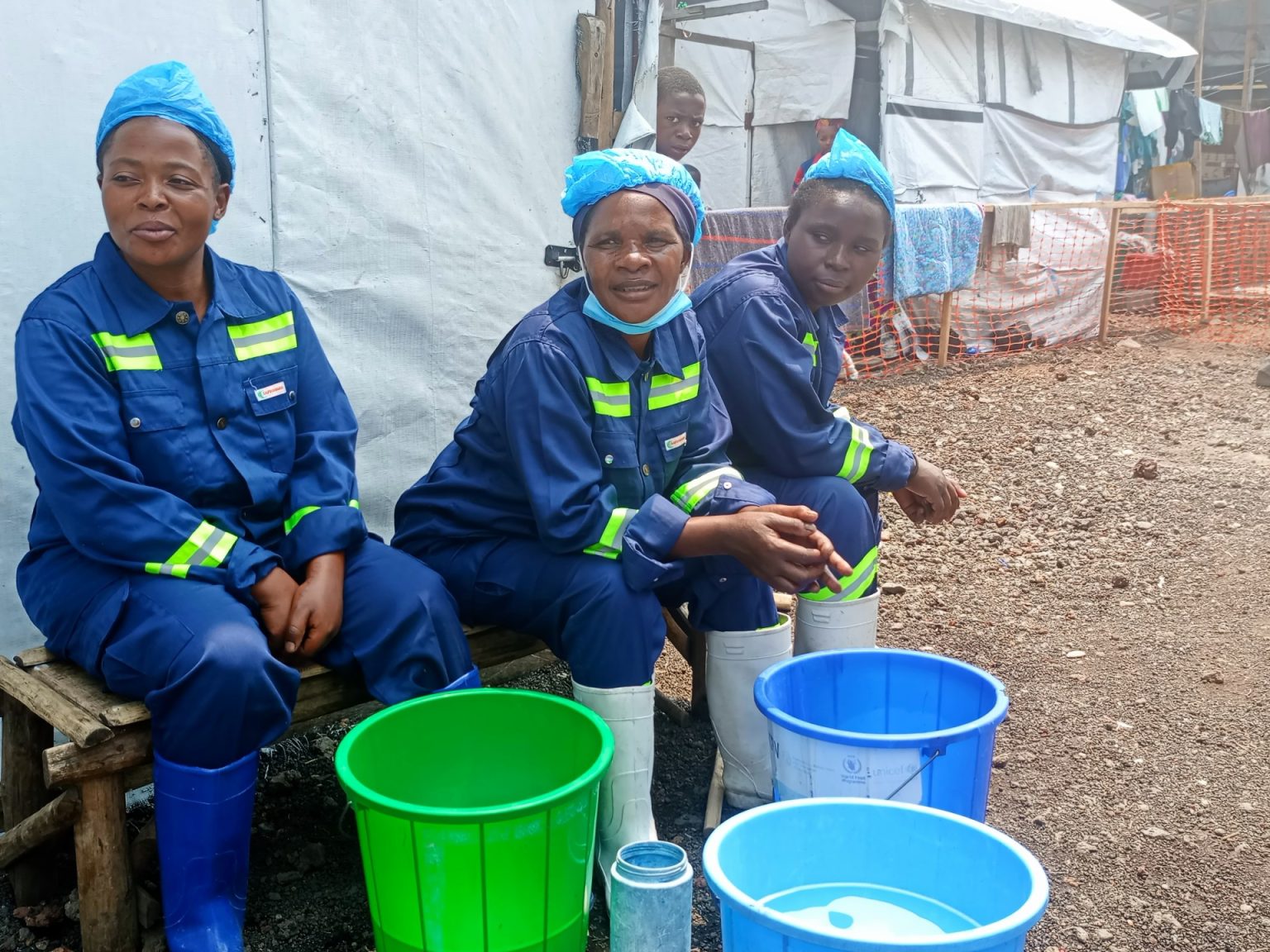In the Democratic Republic of the Congo, the Nyiragongo General Referral Hospital in Goma is at the forefront of treating patients infected with the viral disease mpox, previously known as monkeypox. Despite ongoing challenges such as medicine shortages and a rebellion in the east, the doctors and medical staff are calmly and efficiently screening, isolating, and caring for patients. Patients like Madam Nyota Joyeuse, a shopkeeper and mother of two, are receiving treatment in white tented areas separate from other patients to avoid contamination.
Mpox, related to the smallpox virus, was updated from its original name of monkeypox in 2022 to reduce stigma. Outbreaks of the disease are common in the DRC, with a recent rise attributed to a new strain spreading faster. The WHO has reported cases in multiple African countries as well as Sweden, Pakistan, and the Philippines. In the DRC, all 26 provinces have detected cases, with over 15,000 cases and 548 deaths this year. Medical director Badiambila Mulumba notes the control of cases at Nyiragongo Hospital, with 78 positive cases but no deaths reported.
Health workers like Rachel Maguru at the North Kivu Provincial Hospital in Goma are treating mpox patients, many of whom arrive after the disease has manifested on their skin with a distinctive rash and pustules. Despite previous experience with Ebola and COVID-19 outbreaks, health workers are concerned about the impact of the mpox outbreak. While no lockdown measures have been imposed yet, some residents fear the disease spreading, especially given the weakened health system and previous epidemics.
In the conflict-ridden eastern DRC, health workers and NGOs face challenges responding to the mpox outbreak due to ongoing conflicts and humanitarian crises. Doctors Without Borders has treated over 1,100 cases of mpox in three provinces, despite the complex situation. Natalia Torrent, head of the MSF team, expresses concerns about managing multiple epidemics with limited resources in conflict-affected regions. The conflict with M23 rebels has led to displacement and deaths, impacting access to affected communities.
Patients being treated for mpox at Nyiragongo Hospital, like Amina Upendo and her daughter, face delays in treatment due to medicine shortages. Healthcare providers like Nzayinambaho Theophile acknowledge these challenges, with no specific treatment available for mpox cases in the DRC. Doctors treat symptoms and provide basic remedies based on patient presentations, but with stockouts, they may fall short. Vaccines that could reduce the risk of contracting mpox are not readily available to at-risk populations in the DRC, highlighting issues of vaccine inequality.
Civil society members in North Kivu express concerns about the spreading mpox and its potential consequences. Health activist Emmanuel Bitangalo calls for an emergency response plan and increased public awareness. The Congolese government claims to be taking necessary measures to identify and treat cases free of charge, while also highlighting the need for vaccines to limit the spread of the disease. Doctor Rodriguez Kisando emphasizes the need for a concrete policy addressing human, animal, and environmental health in the face of epidemics like mpox, especially in conflict-affected regions where displaced individuals are at risk.


